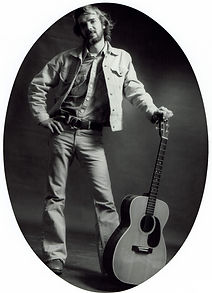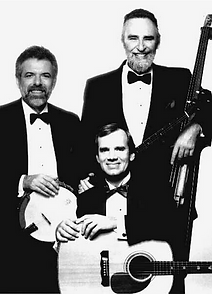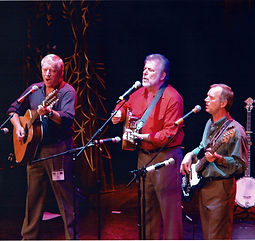Rick Dougherty
It's a long and a dusty road
Born in Chicago, raised in Altadena, Rick grew up in a musical family where his mother played piano and everyone sang. He learned to play piano by ear, picked up guitar when he got to high school and soon was appearing in local coffee houses. By the time he left for the San Francisco he was playing ragtime guitar and had earned a citation of promise by the music department.


After a short stay in San Francisco Rick went to Denver, where the folk music scene was booming at the time. This began an almost ten-year span of traveling through the western states, playing clubs and hotel lounges and once being the opening act for Odetta at Marvelous Marv’s in Denver.
Rick completed his degree in music at Sonoma State University in 1987 and began working with several opera companies in the Bay Area as a stage director. These included the Livermore Valley Opera, Sonoma City Opera, West Bay Opera and the Bear Valley Music Festival. By 1999 he had directed 36 operas in the Bay

In 1990 Rick had also joined The Limeliters, singing the high tenor lines originally sung by Glenn Yarbrough. In 1996 Lou Gottlieb passed away quite suddenly, and Bill Zorn stepped in to fill his place. The Limeliters held together for 13 years, long enough to appear in the “This is Your Land” PBS Special hosted by the Smothers Brothers and Judy Collins, sharing the stage with Glenn Yarbrough, The Kingston Trio and many other artists of the 60s.

Bill and Rick left The Limeliters in 2003, with Bill replacing Bob Shane in The Kingston Trio and Rick joining Glenn Yarbrough and Dick Foley to form The Folk Reunion. They joined the “This Land is Your Land” tour, a follow-up to the PBS special, which included The Kingston Trio and Brothers Four.


The tour was very successful but ended when Glenn quit the group after a single season. Fortunately, Rick’s voice had impressed George Grove, the banjo player and de facto leader of The Kingston Trio, and he asked Rick to their group.


This new lineup of The Kingston Trio with Rick was considered the best one ever, even by the die-hard fans; with powerful vocals, great instruments and a show that pulled people in. This group stayed together from 2005-2017, when Bob Shane leased the group name to three investors. He cut the group members off with no notice and never did pay them for several months of gigs.
Despite this setback, Rick and George decided to keep on singing and formed a new group, the Folk Legacy Trio, to celebrate all the wonderful songs of the folk era. They also brought in Jerry Siggins who had sung with The Diamonds for 27 years and with The Dapper Dans barbershop group of Disneyland for a dozen years before that.
The vocal blend of this group is stunningly beautiful, and their extensive repertoire covers the entire folk era with songs by all the great folk artists of the 60s.
Rick still sings and tours with the Folk Legacy Trio, teaches guitar and voice and has written a guitar manual, "Sounding Good on One Guitar" which has received excellent reviews.

Come visit the Folk Legacy Trio website at: folklegacytrio.com